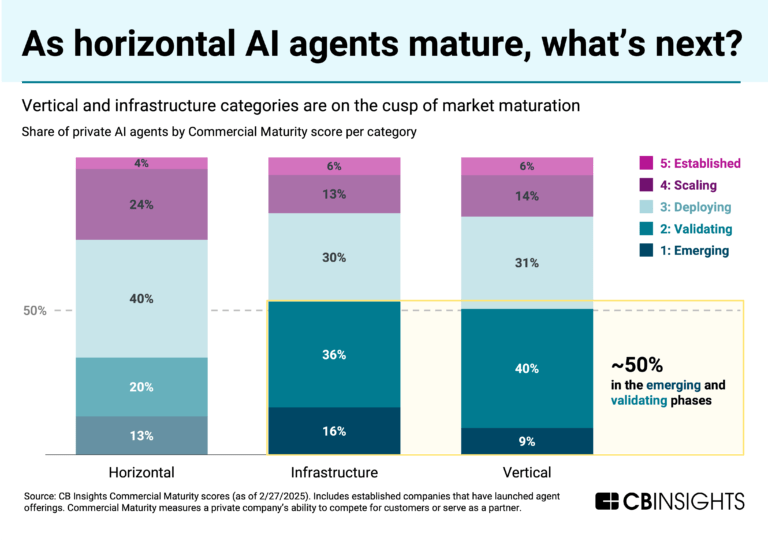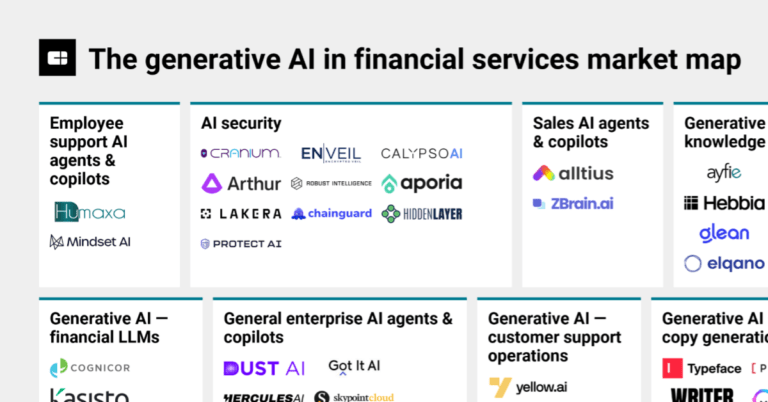
Hebbia
Founded Year
2020Stage
Incubator/Accelerator | AliveTotal Raised
$161.1MRevenue
$0000Mosaic Score The Mosaic Score is an algorithm that measures the overall financial health and market potential of private companies.
+112 points in the past 30 days
About Hebbia
Hebbia offers tools that use generative artificial intelligence to assist with workflows, analyze documents, and provide insights. It serves industries such as asset management, legal, real estate, and corporate consulting, offering artificial intelligence (AI) solutions for their needs. It was founded in 2020 and is based in New York, New York.
Loading...
Hebbia's Product Videos
_thumbnail.png?w=3840)
_thumbnail.png?w=3840)
ESPs containing Hebbia
The ESP matrix leverages data and analyst insight to identify and rank leading companies in a given technology landscape.
The generative AI — enterprise knowledge management market aims to remove knowledge silos within organizations by centralizing data from various tools and applications, making it easy to search, share, and manage from one place. Solutions typically feature AI-powered search capabilities, integration with multiple data sources, personalized results, and generative features for summarization and que…
Hebbia named as Highflier among 15 other companies, including Microsoft, Glean, and WRITER.
Hebbia's Products & Differentiators
Neural search
Hebbia empowers knowledge workers with neural search – eliminating work intensive information retrieval and unlocking diligence & analysis. Via one-click integration with major cloud storage providers, the platform syncs files to an end-to-end encrypted index. Users can query terabytes of unstructured information and surface passage-level results across every file type. Hebbia’s proprietary index & parse engines wrangle the most difficult data, and search scales independent of repository size.
Loading...
Research containing Hebbia
Get data-driven expert analysis from the CB Insights Intelligence Unit.
CB Insights Intelligence Analysts have mentioned Hebbia in 8 CB Insights research briefs, most recently on Sep 23, 2025.
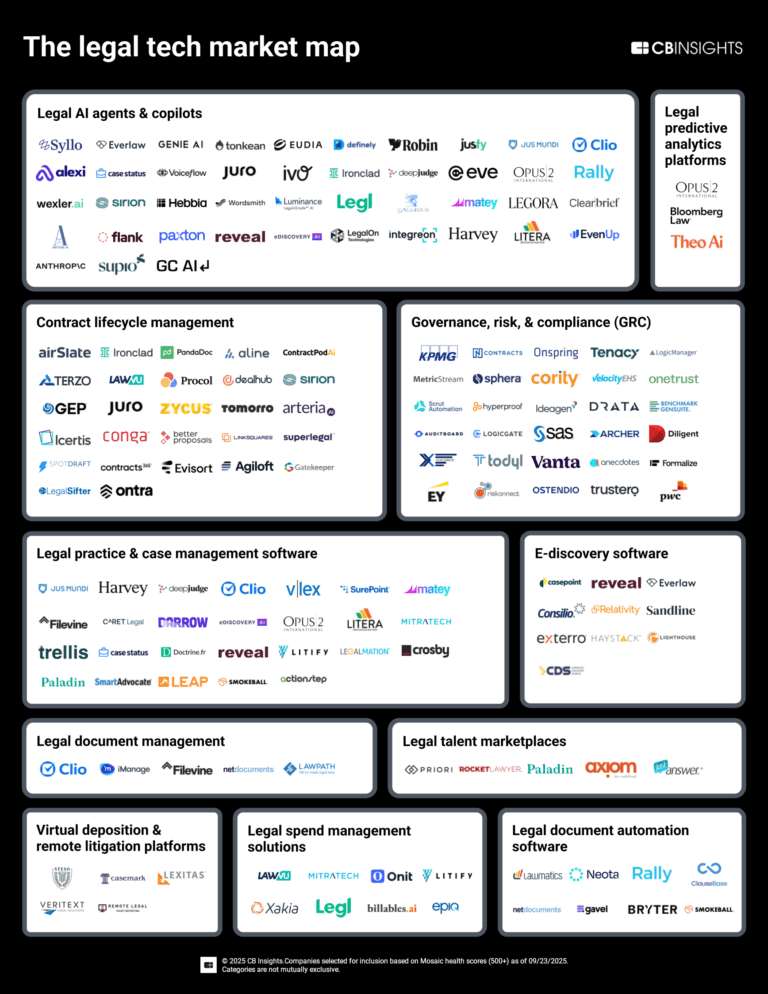
Sep 23, 2025
140+ companies rewriting the legal industry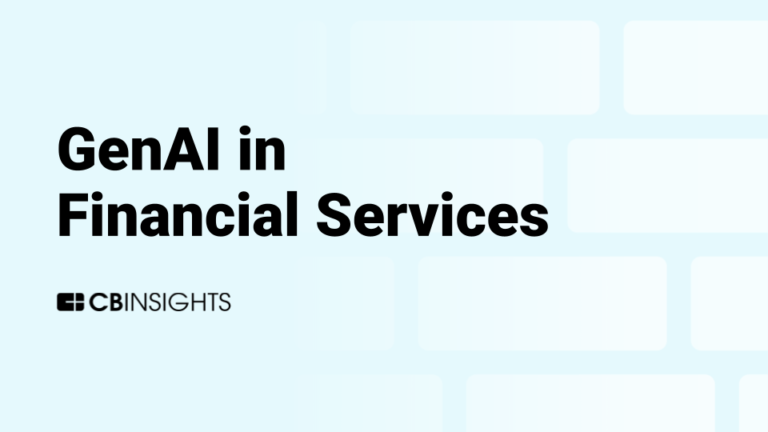
Aug 29, 2025 report
Book of Scouting Reports: Generative AI in Financial Services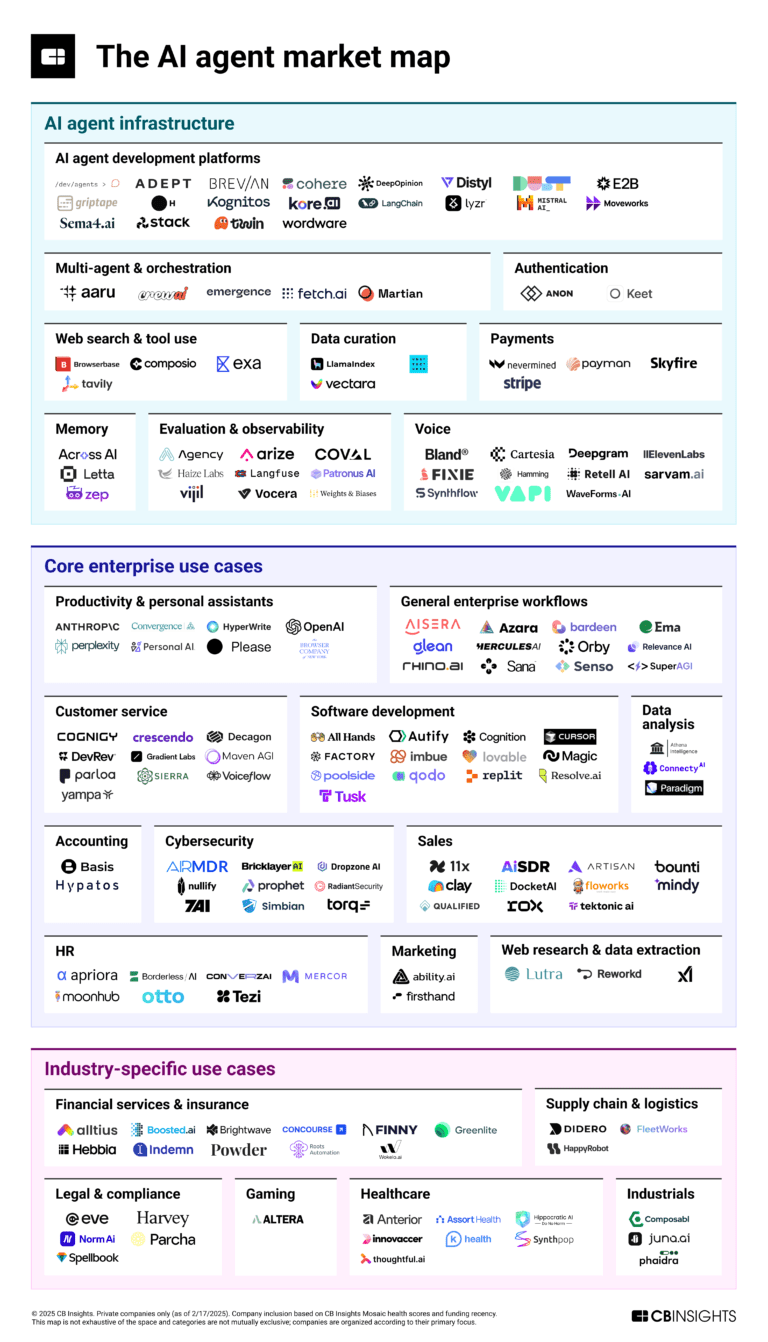
Mar 6, 2025
The AI agent market map: March 2025 edition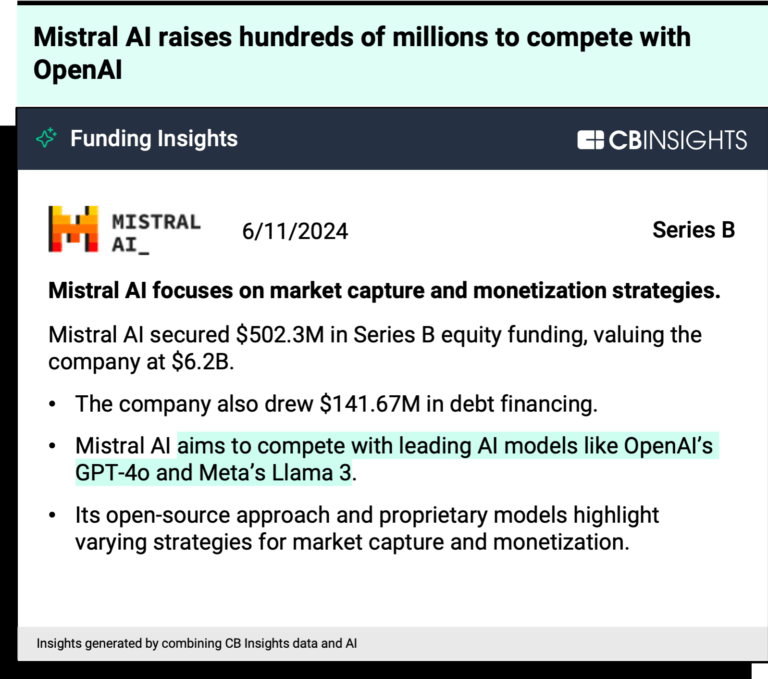
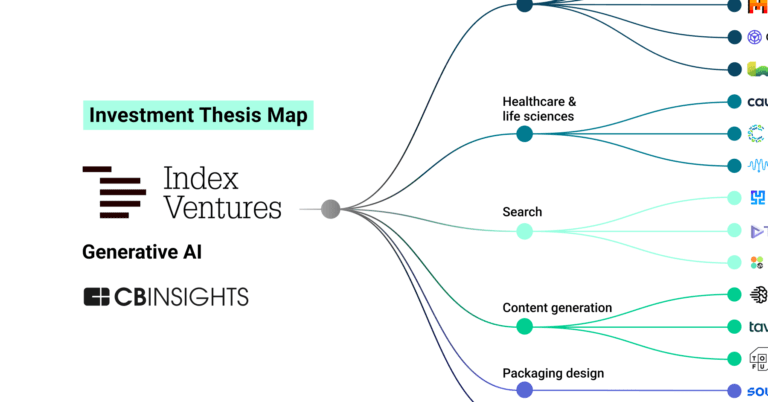
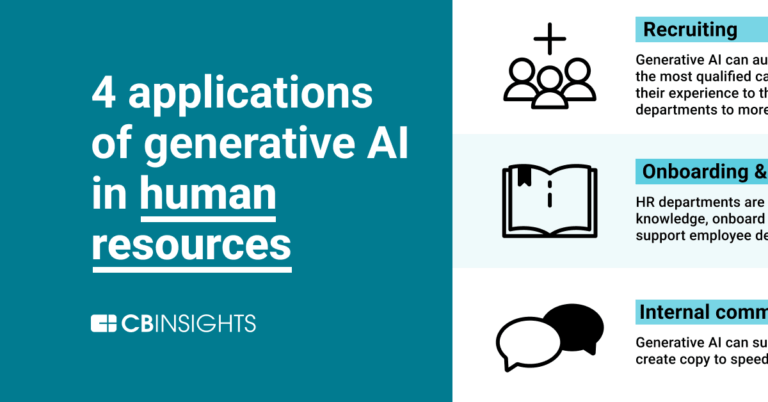
Aug 4, 2023
4 applications of generative AI in HRExpert Collections containing Hebbia
Expert Collections are analyst-curated lists that highlight the companies you need to know in the most important technology spaces.
Hebbia is included in 6 Expert Collections, including Artificial Intelligence (AI).
Artificial Intelligence (AI)
37,256 items
Companies developing artificial intelligence solutions, including cross-industry applications, industry-specific products, and AI infrastructure solutions.
Generative AI 50
50 items
CB Insights' list of the 50 most promising private generative AI companies across the globe.
Generative AI
2,951 items
Companies working on generative AI applications and infrastructure.
AI Agents & Copilots Market Map (August 2024)
322 items
Corresponds to the Enterprise AI Agents & Copilots Market Map: https://app.cbinsights.com/research/enterprise-ai-agents-copilots-market-map/
AI agents (March 2025)
376 items
Companies developing AI agent applications and agent-specific infrastructure. Includes pure-play emerging agent startups as well as companies building agent offerings with varying levels of autonomy. Not exhaustive.
AI agents & copilots
1,771 items
Companies developing AI agents, assistants/copilots, and agentic infrastructure. Includes pure-play emerging agent startups as well as companies building agent offerings with varying levels of autonomy.
Hebbia Patents
Hebbia has filed 1 patent.

Application Date | Grant Date | Title | Related Topics | Status |
|---|---|---|---|---|
11/26/2024 | 4/8/2025 | Grant |
Application Date | 11/26/2024 |
|---|---|
Grant Date | 4/8/2025 |
Title | |
Related Topics | |
Status | Grant |
Latest Hebbia News
Nov 6, 2025
AI’s White-Collar Gig Boom: Startups Reshaping Banking and Law AI startups are fostering a new gig economy where bankers and lawyers train algorithms on complex tasks, automating junior roles while creating flexible freelance opportunities. This shift, highlighted by firms like OpenAI and Hebbia, promises transformation in professional services by 2026. AI’s White-Collar Gig Boom: Startups Reshaping Banking and Law Written by Eric Hastings Thursday, November 6, 2025 In the rapidly evolving landscape of artificial intelligence, a new gig economy is emerging that targets the high-stakes worlds of banking and law. Startups are leveraging AI to outsource complex tasks traditionally handled by junior professionals, creating flexible opportunities for experienced bankers and lawyers to train and refine these systems. This shift, driven by companies like OpenAI and Hebbia, promises to automate drudgery while opening up freelance avenues for white-collar workers. According to a recent newsletter from Bloomberg , AI firms are increasingly hiring former bankers and lawyers on a gig basis to teach algorithms the nuances of financial modeling and legal analysis. This mirrors broader trends where AI agents are moving beyond chat interfaces to handle enterprise workflows, as noted in Sequoia Capital’s AI 50 list for 2025. The Rise of AI Training Gigs OpenAI’s secretive project, codenamed Mercury, exemplifies this trend. The company has enlisted over 100 former investment bankers as contractors, paying them $150 per hour to train AI on financial modeling for transactions like mergers and acquisitions. “OpenAI looks to replace the drudgery of junior bankers’ workload,” reports The Economic Times , highlighting how these gigs automate entry-level tasks while providing flexible income for seasoned professionals. Similarly, AI startup Hebbia is transforming investment banking workflows. A demo reviewed by Business Insider showed how its tools could streamline data analysis and deal preparation, potentially reducing the need for round-the-clock junior analyst labor. Industry insiders note that this creates a gig market where bankers can contribute expertise remotely, without full-time commitments. Posts on X, formerly Twitter, reflect growing sentiment around this shift. One user highlighted, “A new gig economy is emerging, focused on training AI to perform tasks typically handled by white-collar professionals like bankers and lawyers,” echoing discussions on platforms about AI’s role in reshaping careers. Legal Sector Disruptions The legal field is not immune. Startups listed in AIMojo’s 2025 roundup of 12 AI companies in the legal sector are innovating with agentic AI for tasks like contract review and case prediction. These tools require human oversight and training, spawning gig roles for lawyers to fine-tune AI outputs and ensure accuracy. A Forbes article from March 2025 posits that AI is both a threat and opportunity in the gig economy, with freelancers who master AI tools thriving in legal tech. “AI is reshaping the gig economy, disrupting jobs while creating new opportunities,” the piece states, emphasizing adaptability for professionals. McKinsey’s 2025 State of AI survey, available at McKinsey , underscores how AI agents are driving value in professional services, including law, by automating routine tasks and enabling scalable gig work. Broader Economic Implications This AI-driven gig economy extends beyond individual roles. A Forrester report cited in IT Brief Asia predicts that by 2026, over half of younger adults will use generative AI for financial advice, transforming banking sectors and creating demand for gig-based AI trainers. CB Insights’ AI 100 for 2025, found at CB Insights , ranks emerging AI companies shaping intelligent systems in industries like finance and law, with a focus on agentic AI that relies on human input for complex reasoning. Startups like DeepSeek and Agility AI, featured in Bloomberg’s list of AI startups to watch in 2026, are building tools that could further expand this gig model by integrating AI into vibe-coding and robotics, potentially applicable to financial simulations. Challenges and Opportunities Ahead However, this transformation isn’t without hurdles. A RadCred survey reported in OpenPR reveals that 58% of gig workers seek emergency loans quarterly, highlighting financial instability in this emerging economy. X posts from users like Timo Rainio emphasize, “The landscape of business technology is undergoing a massive, AI-driven transformation, with Agentic AI emerging as the single most critical trend for 2025,” pointing to the need for persistent memory and security in AI systems trained by gig professionals. TechCrunch’s compilation of 33 US AI startups raising over $100 million in 2025, accessible at TechCrunch , shows heavy investment in AI infrastructure, fueling the gig economy’s growth in banking and law. Industry Adaptation Strategies For bankers and lawyers, adapting means embracing AI literacy. Startups Savant lists top AI startups to watch in 2025 at Startups Savant , many of which are creating platforms for gig-based AI collaboration in professional services. Sequoia Capital’s insights note that AI agents are taking on real workflows in law and customer service, as detailed in their AI 50 report , suggesting a future where gig workers specialize in AI oversight rather than traditional tasks. Finally, as AI integrates with IoT and blockchain, per X posts from SA News Channel, the gig economy for white-collar pros will likely expand, demanding continuous upskilling to leverage these technologies in banking and legal contexts. Subscribe for Updates AITrends Newsletter The AITrends Email Newsletter keeps you informed on the latest developments in artificial intelligence. Perfect for business leaders, tech professionals, and AI enthusiasts looking to stay ahead of the curve. AITrends By signing up for our newsletter you agree to receive content related to ientry.com / webpronews.com and our affiliate partners. For additional information refer to our terms of service . Notice an error?
Hebbia Frequently Asked Questions (FAQ)
When was Hebbia founded?
Hebbia was founded in 2020.
Where is Hebbia's headquarters?
Hebbia's headquarters is located at 233 Spring Street, New York.
What is Hebbia's latest funding round?
Hebbia's latest funding round is Incubator/Accelerator.
How much did Hebbia raise?
Hebbia raised a total of $161.1M.
Who are the investors of Hebbia?
Investors of Hebbia include Plug and Play Fintech Accelerator, Peter Thiel, Index Ventures, Google Ventures, Andreessen Horowitz and 14 more.
Who are Hebbia's competitors?
Competitors of Hebbia include Corvic AI, Metal, Tavily, BlueFlame AI, Auquan and 7 more.
What products does Hebbia offer?
Hebbia's products include Neural search and 4 more.
Loading...
Compare Hebbia to Competitors

Rogo is a company specializing in generative artificial intelligence for the financial services industry. Its main offerings include an enterprise AI platform designed to automate workflows, manage productivity, and facilitate data-driven decision-making for financial institutions. Rogo's platform is tailored to meet the specific needs of financial institutions, including investment banking, hedge funds, private equity, and asset management firms. It was founded in 2021 and is based in New York, New York.

Glean serves as an enterprise artificial intelligence (AI) platform that provides tools for workplace productivity across various sectors. Its main offerings include AI-assisted search, custom generative AI applications, and management of AI agents. The platform is used by departments such as engineering, customer service, sales, and human resources, in industries including retail and financial services. It was founded in 2019 and is based in Palo Alto, California.

Maya AI provides artificial intelligence solutions across various business sectors. The company offers services to automate tasks, improve workflows, and provide data processing and integrative platforms. Maya AI serves sectors such as human resources, customer service, and regulatory compliance. Maya AI was formerly known as XiByte. It was founded in 2017 and is based in Tampa, Florida.

AlphaSense operates as a platform that provides tools for analyzing and synthesizing insights from business and financial documents. It is utilized by sectors such as investment banking, hedge funds, private equity, asset management, and corporate industries that require market and competitive intelligence. It was founded in 2008 and is based in New York, New York.
Multiply focuses on enhancing creative workflows through personalized assistance and AI integration within various business sectors. The company offers a platform that streamlines the creative process by providing customizable templates, workflow automation, and tools for consistent content creation without repetitive tasks. Multiply primarily serves sectors that require collaborative content creation, such as marketing agencies, branding agencies, and digital content teams. Multiply was formerly known as Fluent. It was founded in 2019 and is based in Stockholm, Sweden.

Mem is a company that focuses on AI knowledge management and organization within teams. Its main offerings include tools that help organize work such as meeting notes, projects, and knowledge bases, making them searchable and accessible. These services aim to improve collaboration and information retrieval for teams across various sectors. Mem was formerly known as Supernote. It was founded in 2019 and is based in Los Altos, California. Mem operates as a subsidiary of OpenAI.
Loading...

